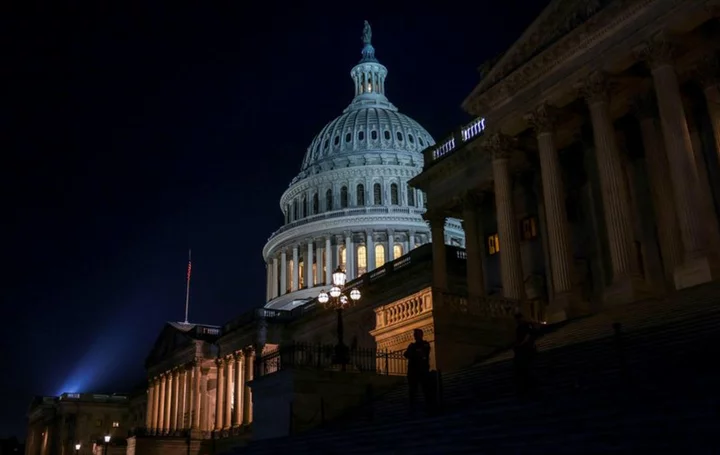By Dietrich Knauth
NEW YORK The International Brotherhood of Teamsters on Tuesday called for changes to U.S. bankruptcy laws following the Chapter 11 filing of freight trucking company Yellow Corp, saying that workers must not be "left behind" when big businesses fail.
The Teamsters union said 22,000 of its members were out of work despite making significant concessions on wages and pension benefits in labor negotiations with the nearly 100-year-old company, which filed for bankruptcy on Sunday.
Yellow has blamed the Teamsters' opposition to its internal reorganization efforts for its collapse. But the Teamsters said its members had sacrificed more than $5 billion in wage and benefit concessions since 2009 to keep Yellow moving.
The union warned that the bankruptcy could mean they will not receive bargained-for retirement benefits or severance pay.
"Corporate bankruptcy legislation in the U.S. is a joke," Teamsters General President Sean O'Brien said in a statement. "Hardworking people routinely get left behind in this process when they should be at the front of the line to be paid and protected for the sacrifices they make to American employers."
Yellow did not immediately respond to a request for comment.
The union argued that U.S. bankruptcy law should be reformed to protect collecting bargaining agreements and worker retirement plans, which can be terminated by a bankrupt company or by a new buyer who acquires a company out of bankruptcy.
The union cited legislation last introduced in 2020 by two Congressional Democrats, Senator Dick Durbin of Illinois and Representative Jerry Nadler of New York, as an example of the kind of legislation it would support.
That legislation, the Protecting Employees and Retirees in Business Bankruptcies Act, would have prioritized payment for certain employee wage and retirement claims and it would have made it more difficult for bankrupt employers to terminate pension plans and collective bargaining agreements.
The bill passed a House committee but was not enacted into law.
U.S. bankruptcy law currently prioritizes repayment of up to $15,150 in wages per employee, according to bankruptcy attorney George Singer, who is not involved in Yellow's case.
But a law that forces debtors to honor existing collective bargaining agreements and retirement plans could conflict with other fundamental goals of bankruptcy, like giving debtors a fresh start or ensuring that losses are shared by similarly-situated creditors, Singer said.
Yellow's bankruptcy also carries risk for U.S. taxpayers, who could be on the hook if the company is unable to repay a $700 million government loan.
Yellow executives have said they intend to fully repay a bailout loan issued by former President Donald Trump's administration in 2020, but that will depend on the company’s success in selling properties and roughly 12,000 trucks.
The U.S. government also faces losses on its nearly 31% ownership stake in Yellow, which it received as additional security for the loan. Shareholders are often last to recover their investments.
Yellow stock traded at $3.08 per share late Tuesday, up from $2.48 at the start of the day.
(Reporting by Dietrich Knauth; Editing by Jamie Freed)









